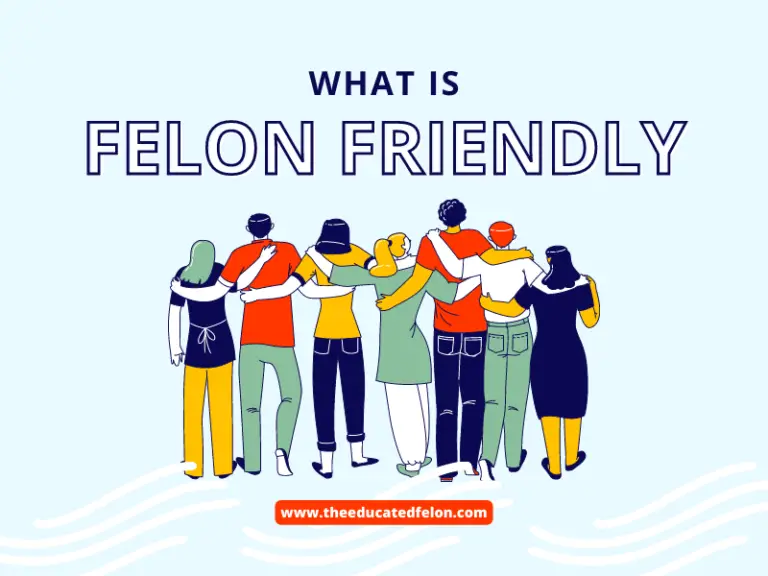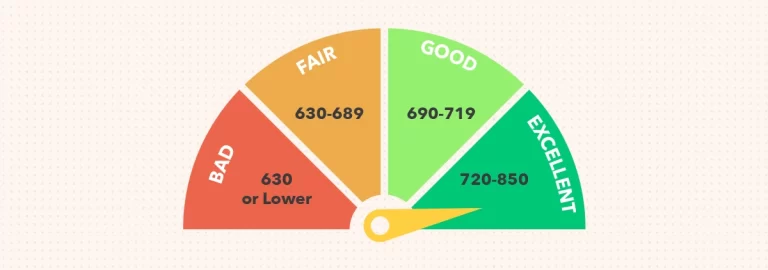CAN YOU GET LIFE INSURANCE IF YOU HAVE A FELONY
As America prides itself on providing opportunities to all (even those with some past legal setbacks), understanding how a felony may impact one’s life insurance eligibility becomes an essential subject.
The journey to securing life insurance for a convicted felon can be a daunting task, as it crosses the path of law and financial services, with variables ranging from insurance premiums to the nature of the crime, among others.
This post focuses into unmasking the multiple layers of life insurance eligibility for those with a criminal record, providing clear insights into different types of life insurance, their requirements, and how a felony may affect it all.
By diving into real-life scenarios and sharing valuable advice, this post aims to alleviate the uncertainty surrounding the ability to secure life insurance by an individual with a criminal record.
CAN YOU GET LIFE INSURANCE IF YOU HAVE A FELONY

Obtaining life insurance after a felony conviction is indeed possible, but it can be a bit more of a complicated process compared to individuals without a criminal record, as insurance companies are primarily concerned with risk, and having a felony on record can be seen as an increased risk. A critical guiding principle for insurers is that the higher the risk, the higher the insurance premiums.
The presence of a felony record will have an impact on insurance premiums. This is because insurance underwriters, while determining the rates, often factor in various elements related to your lifestyle, health, and personal history, inclusive of criminal records.
Typically, individuals with felonies may experience higher premiums than those without criminal records. The rationale behind this is that the insurance companies perceive a link between engaging in risky behaviors (which might result in a criminal record) and the probability of an early death.
DOES THE NATURE OF CRIME AFFECT GETTING LIFE INSURANCE
Yes, the nature of the committed felony can heavily influence the decisions of the insurance underwriters as well. For instance, a felony conviction for a white-collar crime like embezzlement might be viewed differently than a violent crime such as assault or murder.
Insurance companies might consider that violent or drug-related crimes might correlate with an unsafe lifestyle, thus increasing the risk of premature death. Whereas, non-violent crimes might be less of a concern in terms of life expectancy, but may still affect the trustworthiness in the eyes of the insurer.
DOES THE AMOUNT OF TIME SINCE THE CRIME WAS COMMITTED AFFECT GETTING LIFE INSURANCE
Yes, time plays a significant role in life insurance qualification, as insurers do not just consider the presence of a felony; they also look at when the crime occurred. A felony that happened decades ago is less likely to influence insurability than a recent one.
Additionally, insurance companies also consider what the applicant’s life has been like after the conviction. Factors such as subsequent offenses, participation in rehabilitation programs, steady employment, and overall lifestyle changes are weighed in before making a decision.
Even though individuals with a felony conviction face challenges when applying for life insurance, these obstacles do not necessarily exclude them from securing a policy. Different insurance companies have varying policies regarding criminal records.
Click HERE for a list of Insurance Companies that will insure someone with a criminal record.
While some insurers may deny coverage outright, others may offer insurance with elevated premiums or waiting periods. Therefore, it may require careful shopping and comparison to find a company that is comfortable with the level of risk associated with a particular applicant.
Obtaining life insurance following a felony conviction might appear challenging, yet, it’s not entirely impossible. A felony does place importance on the necessity for a stable, healthy lifestyle after conviction to boost the likelihood of gaining coverage.
WHAT KIND OF LIFE INSURANCE IS AVAILABLE FOR SOMEONE CONVICTED OF A FELONY

Essentially, there are three primary categories of life insurance: Term Life Insurance, Whole Life Insurance, and Universal Life Insurance.
- Term Life Insurance offers coverage for a specific “term” or period of time—for example, 10, 15, or 20 years. The death benefit is provided only if the policyholder passes away within the term. Given the generally lower premiums, this tends to be a financially attractive choice for many. The qualifying criteria for term life insurance can differ between insurance providers.
- Whole Life Insurance, in contrast to term life, provides coverage for the entire lifetime of the policyholder and includes a cash value feature that appreciates over time. Irrespective of when the policyholder dies, the benefits are dispensed. The underwriting process for whole life insurance is typically more extensive and may include a physical examination. Due to the comprehensive lifelong coverage and benefits derived from the cash value, the premiums are usually higher.
- Universal Life Insurance (somewhat different from both), is a form of permanent life insurance that includes a cash value aspect as well. It is unique in its flexible premium and death benefit structures. Policyholders can generally modify their premiums and death benefits over an extended period based on their circumstances and requirements.
The Impact of a Felony on Life Insurance Eligibility
When it comes to getting life insurance with a felony record, there is no one-size-fits-all answer. It often depends on the individual insurer’s underwriting guidelines.
In general, having a felony conviction may not automatically disqualify you from obtaining life insurance, but it can significantly impact the cost of premiums and the terms of the policy. Life insurance companies consider felony convictions a significant risk factor, and felonies involving violent crimes, drug offenses, or felonies committed within the last few years will likely have the most substantial impact on policies.
Understanding the Underwriting Process
The underwriting process is how insurance companies evaluate the risk of insuring a prospective policyholder. Factors such as health, lifestyle, family medical history, and personal behaviors significantly influence this process. Criminal history, including felony convictions, is part of this consideration. An applicant’s felony record might lead to higher premium rates, policy exclusions, or even denial of coverage.
CAN A FELON GET LIFE INSURANCE

While a felony conviction can make obtaining life insurance more challenging, it does not necessarily eliminate all possibilities, as those with a criminal history can explore alternative options such as:
- Guaranteed Issue Life Insurance: A type of insurance that typically doesn’t require a medical examination or extensive background checks. Although this option may be pricier, it serves as a viable path for individuals who may encounter difficulties securing traditional life insurance due to a felony record.
- Group Life Insurance: Frequently offered by employers as part of their benefits package, group life insurance usually does not delve deeply into personal histories since it is underwritten en masse (multiple individuals), rather than individually.
- Seek Coverage through Smaller Insurance Companies or Brokers: These entities are often more willing to accommodate applicants with complex backgrounds due to their flexible underwriting policies.
Regardless of past convictions, honesty is paramount during the application process. By giving accurate and comprehensive information, insurance companies can make informed decisions about issuing the policy and determining the rates. Any dishonesty or omission can result in policy denial or refusal of payment upon the death of the policyholder.
WHAT IS THE APPLICATION PROCESS LIKE FOR A FELON LOOKING FOR LIFE INSURANCE

When discussing life insurance, it’s important to understand how a felony record can potentially complicate things. The perception of increased risk due to possible reckless behavior or lifestyle choices resulting in premature death often leads insurance companies to perceive felons as high-risk clients. Consequently, they may require more thorough information, potentially imposing additional policy restrictions.
Full Disclosure and Honesty in Application Process
The first step toward securing life insurance as a felon is full disclosure and honesty about your criminal history. While it might be tempting to withhold information about your past, this is not recommended. Insurance companies have ways of obtaining such information and dishonesty could end up costing you your policy or (worse yet) result in refusal of the pay-out when a claim is filed.
When filling out your application, be sure to share all necessary information about your felony, including the nature of the crime, when it happened, and any context that might help the insurer understand the situation. This process of disclosure is essential for insurance companies to accurately assess the risk level associated with your policy.
Overcoming Application Challenges
Even with honesty and openness about your criminal history, you should prepare for potential challenges during your application process. An insurance company might increase your premiums due to the perceived higher risk. Additionally, circumstances surrounding your felony, such as drug or alcohol-related charges, can complicate things further.
Despite these challenges, there are strategies you can employ to improve your chances of getting life insurance. You can hire an insurance broker with experience handling complex cases, as they can provide advice and guide you to insurance companies that specialize in high-risk applicants. They may also be able to help you negotiate your premiums.
Felony Nature and Time Elapsed
The nature of your felony and the time elapsed since conviction may significantly impact the life insurance application process. Individuals who have been convicted for non-violent crimes or whose convictions are several years in the past may find it easier to secure a policy.
Deferred sentence or probation can also play a crucial role in the application process. An individual on probation or with a deferred sentence might have to wait until these legal consequences have concluded before they can successfully obtain an insurance policy.
Type of Insurance
The type of life insurance you apply for can also make a difference. Some companies offer guaranteed issue life insurance policies, which require no medical examination or answering health-related questions. This variant of life insurance might be more viable for individuals with a felony conviction, as they may face increased difficulty acquiring other forms of life insurance.
Post-Conviction Lifestyle Changes
Positive lifestyle changes post-conviction can also sway insurance companies in your favor, especially for crimes connected to substance abuse. Demonstrating long-term recovery, maintaining steady employment, and participating in rehabilitation programs or community service are all positive factors that can help secure coverage.
It is crucial to understand that each insurance company has specific rules and standards when it comes to offering life insurance to applicants with a past felony conviction. Some companies might outright refuse to provide coverage, while others might agree but will likely demand higher premiums or place certain restrictions on the policy.
Despite the challenges, having a felony record doesn’t immediately disqualify someone from obtaining life insurance. Certainly, the process might be more complex and imbued with more restrictions, but that should not deter you from trying. With commitment, patience, and openness, you can find an insurance company willing to supply a policy that meets your requirements and suits your circumstances.
Some real-life examples of individuals with a criminal record who got life insurance

Prior Felony Conviction but No Current Legal Issues
Consider the situation of John Connor, a man in his late 40s, with a felony conviction more than a decade old. Having paid his debt to society and led an exemplary, crime-free life ever since, he considers applying for life insurance. John’s application process went without a hitch, thanks in large part to his clean record since his release and his dedication to maintaining a healthy lifestyle. After closely evaluating John’s case, his chosen insurance company granted him a policy. This scenario demonstrates that the time elapsed since release and visible evidence of reformation can play a significant role in an insurance company’s decision-making process.
Recent Felony Conviction
Milton, a man in his 30s, was recently released after serving jail time for a felony conviction. He decided to apply for life insurance to provide financial security for his two young children. Unfortunately, his application was declined by several life insurance companies due to the recentness of his felony conviction. In such cases, insurance companies consider the higher likelihood of re-offending and trepidation about their investment. This case highlights the challenges facing those with recent felonies in obtaining life insurance policies.
Repeat Offense Cases
Lucas, another example, had multiple felonies from his past. Despite being legally free, he was declined life insurance due to his repeat offenses. A history of repetitive criminal behavior adds an extra layer of scrutiny during insurance applications. Life insurance companies often view repeat offenders as a higher risk compared to one-time offenders.
Felony-related to Drugs
Rita, a woman previously convicted of drug-related felony, sought to secure life insurance. As per protocol, her application went through a stringent review process, particularly her health background (drug screening), current lifestyle and the nature of her past felony. Due to the severe implication of drug use on an applicant’s health status, her request for a life insurance policy was denied initially. However, after proving consistent rehabilitation and negative drug tests for several years, she was finally granted the policy but with higher premium rates. It implies that nature of the felony and its relation to health risks can significantly impact the decision and terms of the insurance provider.
After Parole Period Completion
Lasty, Mike, who completed his parole period after a felony conviction, decided to apply for life insurance. Mike’s application faced complications initially due to his recent parole release, but he was ultimately successful. Once the parole period was completed, the insurance company reassessed their risk, approved his application and offered him a policy with slightly higher premiums. This instance suggests the importance of parole completion in obtaining life insurance post-felony conviction.
Securing a life insurance policy after being convicted of a felony largely hinges on multiple considerations. These include the time passed since release, current behavioral patterns, overall health and lifestyle, the specific nature of the felony, and whether parole has been fully completed.
HOW DO YOU (AS A FELON) INCREASE YOUR CHANCES OF GETTING LIFE INSURANCE

Life insurance eligibility can vary widely, mainly due to each insurance company’s unique underwriting guidelines. Yet, having a felony conviction doesn’t necessarily prevent you from obtaining life insurance. It’s important to be aware, however, that past felony convictions could complicate your application process, possibly resulting in higher policy premiums.
Insurance companies take several factors into account when evaluating an application. These considerations include the type and severity of the crime committed, the amount of time that has passed since the conviction, the current lifestyle of the applicant, and any potential risk the applicant might pose to the insurer. These variables significantly influence the underwriting process, as they enable the insurer to gauge the probability of a claim being filed in the future.
1. Regular Check-ups and Healthy Lifestyle
One way felons can increase their chances of getting life-insured is by regularly keeping tabs on their health and maintaining a healthy lifestyle. Conducting regular medical check-ups and preventive screenings can demonstrate a commitment to good health, something that insurance companies typically look for in policyholders.
Engagement in harmful behaviors such as smoking or excessive drinking could increase your risk factors, leading to premium hikes or even application rejection. Therefore, leaning towards a healthier lifestyle can potentially benefit your insurance application.
2. Demonstrating Responsible Behavior
Demonstrating continued responsible behavior post-conviction can also impact your life insurance application positively. Insurance companies often consider whether the applicant has shown a pattern of responsible and law-abiding behavior since the conviction.
Maintaining steady employment, participating in rehabilitation programs, committing to community service, demonstrating financial stability, and having a clean record post-conviction can all help to build a strong case for potential insurers. Therefore, it is crucial for those with felony convictions to make consistent efforts to change their lifestyle and behavior after serving their sentence.
3. Consulting with Lawyers or Insurance Specialists
Obtaining life insurance after a felony conviction can be a complex process. Therefore, seeking professional help can be beneficial. Lawyers and insurance specialists familiar with the process can provide advice on how to best navigate the application process and present your case in the most favorable light to insurers.
Insurance specialists can help understand underwriting guidelines of various insurers and could potentially point you towards providers more open to insuring individuals with a felony. Lawyers, on the other hand, can help decipher legal jargon and present a strong case on your behalf.
4. Consider a ‘Guaranteed Issue’ Policy
If you’re finding it particularly difficult to obtain traditional life insurance, you can consider a ‘Guaranteed Issue’ policy. These policies typically don’t require any medical underwriting and also don’t ask about the applicant’s criminal background.
However, the death benefits are usually lower, and premiums are higher compared to traditional life insurance. Additionally, if you pass away within the first two years of obtaining this type of policy, the insurer will only refund the premiums paid rather than paying out the full death benefit. Despite the limitations, however, this policy could provide an alternative route if traditional life insurance is unattainable.

CONCLUSION
Decoding the complex world of life insurance, it is clear that a convicted felon can secure a policy, albeit with a few challenges. This however, is no reason to despair as strategies to overcome these complications are achievable. Being open and honest during the application process, being mindful of your health through routine check-ups, and adopting responsible behavior all contribute significantly to increasing your approval chances.
Additionally, the assistance of lawyers or insurance experts familiar with the process for individuals with prior convictions can open the path towards obtaining life insurance. Thus, despite having a criminal record, the way to securing one’s financial future through life insurance is not closed but requires a more practical approach and an honest understanding of the process.
-The Educated Felon







